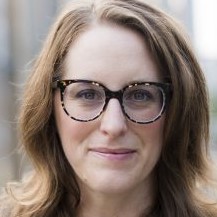Substance Use, Misuse and Dependence Collection Launching Today
Substance use, misuse and dependence and their associated harm present a challenge to people across the globe, of all ages, representing a substantial healthcare burden and a challenge to individuals and society as a whole. Understanding the scope of this multifaceted problem and identifying effective prevention and treatment approaches will require input from researchers and clinicians across disciplines from medicine and public health to the social sciences. Today, PLOS ONE launches an interdisciplinary Collection, in coordination with and complementing a PLOS Medicine Special Issue, exploring the individual, social, structural, and environmental factors that contribute to risk or resilience for substance use disorders, determine their medical consequences, and support recovery outcomes.
The Collection began with a Call for Papers that closed June 14, 2019 and welcomed submissions in a broad range of research areas providing insights into substance use and misuse, for instance, by 1) assessing the impacts of substance use-relevant policies for human health, 2) evaluating the effectiveness of novel structural prevention and treatment interventions, and 3) identifying and measuring the contribution of social, structural, and environmental conditions to prevention, recovery, and relapse. The Guest Editors are Philippe Bourgois (University of California Los Angeles), Daniel Ciccarone (University of California San Francisco), Hannah Cooper (Emory University), Carl Hart (Columbia University) and Lindsey Richardson (University of British Columbia).
At launch, the PLOS ONE Collection includes 10 studies with a wide range of research approaches, from qualitative analyses and observational studies to systematic reviews. The studies look at prevention and treatment of substance use, misuse, and dependence from multiple perspectives, including those of people who use drugs, family members, and healthcare providers. They consider the effects of social and physician networks, as well as city-specific treatment programs and country-specific opioid prescription patterns. They also analyze the impacts of treatments on the next generation and predictive factors that could potentially improve treatment response.
Papers will continue to be added to the Collection as they are published, so stay tuned for new articles and additional insights on this important issue.
About the PLOS ONE Guest Editors:
Philippe Bourgois
 Philippe Bourgois is Professor of Anthropology and Director of the Center for Social Medicine and Humanities in the Department of Psychiatry at the University of California, Los Angeles. His research focuses on incarceration, substance use disorders, violence, homelessness, mental illness, political economic determinants of health and HIV-prevention. He has published over 150 articles, books and edited volumes on these subjects including In Search of Respect: Selling Crack in El Barrio (Cambridge Press 1995), Righteous Dopefiend with Jeff Schonberg (UC Press 2009) and Violence in War and Peace co-edited with Nancy Scheper-Hughes (Wiley Blackwell 2004).He received an AB from Harvard College (1978), MA degrees and a PhD from Stanford University (1980) and postdoctoral training at the École Normale Supérieure.
Philippe Bourgois is Professor of Anthropology and Director of the Center for Social Medicine and Humanities in the Department of Psychiatry at the University of California, Los Angeles. His research focuses on incarceration, substance use disorders, violence, homelessness, mental illness, political economic determinants of health and HIV-prevention. He has published over 150 articles, books and edited volumes on these subjects including In Search of Respect: Selling Crack in El Barrio (Cambridge Press 1995), Righteous Dopefiend with Jeff Schonberg (UC Press 2009) and Violence in War and Peace co-edited with Nancy Scheper-Hughes (Wiley Blackwell 2004).He received an AB from Harvard College (1978), MA degrees and a PhD from Stanford University (1980) and postdoctoral training at the École Normale Supérieure.
Daniel Ciccarone
 Daniel Ciccarone, MD, MPH, is Professor of Family and Community Medicine at the University of California, San Francisco. Dr. Ciccarone has been principal or co-investigator on numerous NIH sponsored public health research projects. He is an internationally recognized scholar on the medical, public health and public policy dimensions of heroin and opioid use, risk and consequences. He is currently leading the Heroin in Transition study with its integrated multidisciplinary – ethnographic, economic and statistical modeling – aims to examine the recent rise in heroin use and the expanding diversity of heroin source-forms and illicitly-made synthetic opioids (e.g. fentanyls) and their relationship to sharp increases in illicit opioid-involved mortality and morbidity. He is Associate Editor for the International Journal of Drug Policy and recently edited an IJDP special issue on the “triple wave crisis” of opioids, heroin and fentanyl in the US. Dr. Dan Ciccarone, MD, MPH is a board certified clinician in Family Medicine and Addiction Medicine. He is a well-known educator and public speaker. He received his medical degree from State University of New York, Stony Brook (1987) and his MPH from University of California, Berkeley (1998). His residency took place at UCSF.
Daniel Ciccarone, MD, MPH, is Professor of Family and Community Medicine at the University of California, San Francisco. Dr. Ciccarone has been principal or co-investigator on numerous NIH sponsored public health research projects. He is an internationally recognized scholar on the medical, public health and public policy dimensions of heroin and opioid use, risk and consequences. He is currently leading the Heroin in Transition study with its integrated multidisciplinary – ethnographic, economic and statistical modeling – aims to examine the recent rise in heroin use and the expanding diversity of heroin source-forms and illicitly-made synthetic opioids (e.g. fentanyls) and their relationship to sharp increases in illicit opioid-involved mortality and morbidity. He is Associate Editor for the International Journal of Drug Policy and recently edited an IJDP special issue on the “triple wave crisis” of opioids, heroin and fentanyl in the US. Dr. Dan Ciccarone, MD, MPH is a board certified clinician in Family Medicine and Addiction Medicine. He is a well-known educator and public speaker. He received his medical degree from State University of New York, Stony Brook (1987) and his MPH from University of California, Berkeley (1998). His residency took place at UCSF.
Hannah Cooper
 Hannah Cooper is the Rollins Chair of Substance Use Disorders Research at the Emory University Rollins School of Public Health, where she is Vice Chair in the Department of Behavioral Sciences and Health Education. Dr. Cooper co-directs of Prevention Science Core at the Emory Center for AIDS Research. The focus of Cooper’s research is on social determinants of substance use disorders and related harms. She received a BA from Yale University (1993) and an SM (1998) and ScD (2003) from the Harvard School of Public Health. She completed a NIDA-funded postdoctoral fellowship at the National Development and Research Institute.
Hannah Cooper is the Rollins Chair of Substance Use Disorders Research at the Emory University Rollins School of Public Health, where she is Vice Chair in the Department of Behavioral Sciences and Health Education. Dr. Cooper co-directs of Prevention Science Core at the Emory Center for AIDS Research. The focus of Cooper’s research is on social determinants of substance use disorders and related harms. She received a BA from Yale University (1993) and an SM (1998) and ScD (2003) from the Harvard School of Public Health. She completed a NIDA-funded postdoctoral fellowship at the National Development and Research Institute.
Carl Hart
 Carl Hart is the Chair of the Department of Psychology at Columbia University. He is also the Ziff Professor of Psychology in the Departments of Psychology and Psychiatry. Prof. Hart has published extensively in the area of neuropsychopharmacology. He is the author of the award-winning book, High Price: A Neuroscientist’s Journey of Self-Discovery That Challenges Everything You Know About Drugs and Society. He is also co-author of the textbook Drugs, Society and Human Behavior (with Charles Ksir). Hart received a BS and MS from the University of Maryland, and a PhD in neuroscience from the University of Wyoming (1996). He completed postdoctoral work at UCSF, Yale and Columbia.
Carl Hart is the Chair of the Department of Psychology at Columbia University. He is also the Ziff Professor of Psychology in the Departments of Psychology and Psychiatry. Prof. Hart has published extensively in the area of neuropsychopharmacology. He is the author of the award-winning book, High Price: A Neuroscientist’s Journey of Self-Discovery That Challenges Everything You Know About Drugs and Society. He is also co-author of the textbook Drugs, Society and Human Behavior (with Charles Ksir). Hart received a BS and MS from the University of Maryland, and a PhD in neuroscience from the University of Wyoming (1996). He completed postdoctoral work at UCSF, Yale and Columbia.
Lindsey Richardson
 Lindsey Richardson is an Assistant Professor of Sociology at the University of British Columbia and a Research Scientist, British Columbia Centre on Substance Use. She is a medical sociologist who specializes in socio-economic determinants of health among people who use illicit drugs and other vulnerable and marginalized populations. Her mixed-methods research links observational, intervention and research participation studies in efforts to critically increase understandings of the determinants and health consequences of socio-economic (in)security. Richardson received a BA from the University of British Columbia (2001) and an M.Phil (2008) and D.Phil (2012) from the University of Oxford. Her postdoctoral work was supported by the Canadian Institutes of Health Research.
Lindsey Richardson is an Assistant Professor of Sociology at the University of British Columbia and a Research Scientist, British Columbia Centre on Substance Use. She is a medical sociologist who specializes in socio-economic determinants of health among people who use illicit drugs and other vulnerable and marginalized populations. Her mixed-methods research links observational, intervention and research participation studies in efforts to critically increase understandings of the determinants and health consequences of socio-economic (in)security. Richardson received a BA from the University of British Columbia (2001) and an M.Phil (2008) and D.Phil (2012) from the University of Oxford. Her postdoctoral work was supported by the Canadian Institutes of Health Research.
